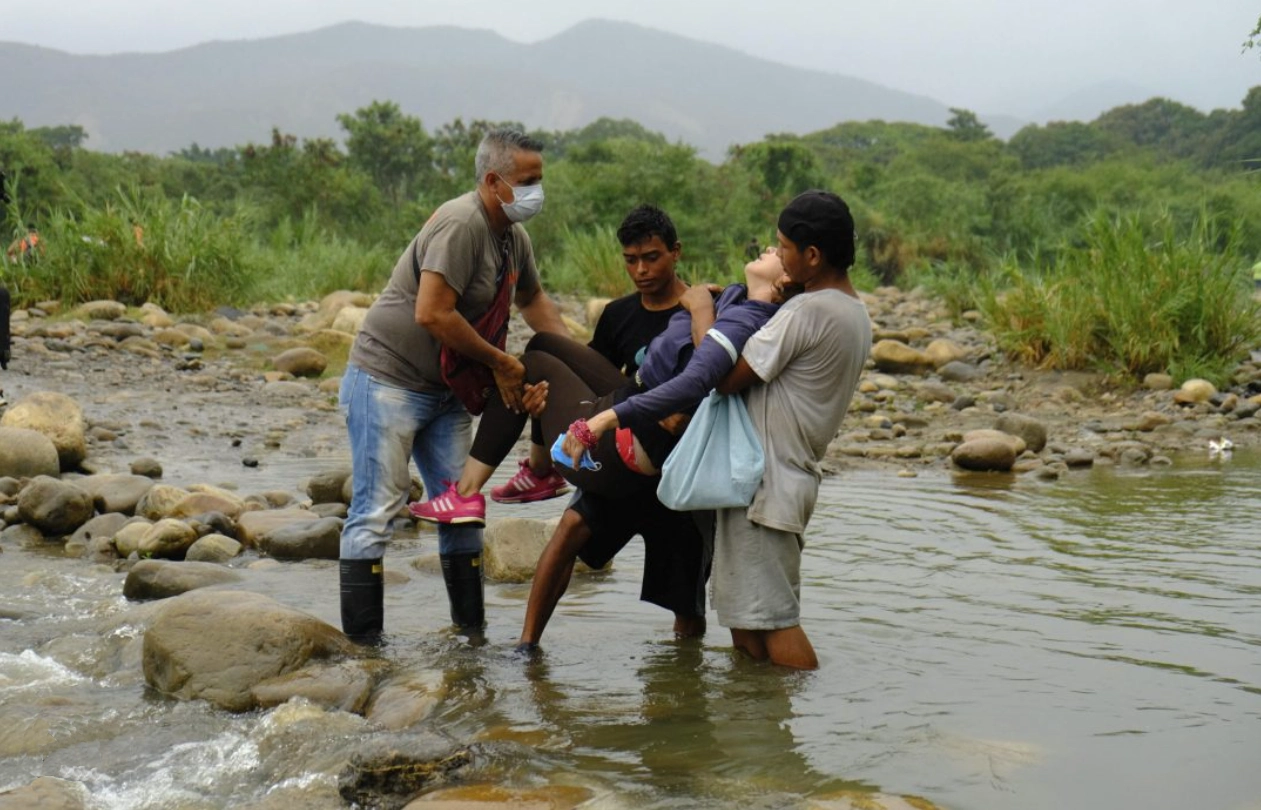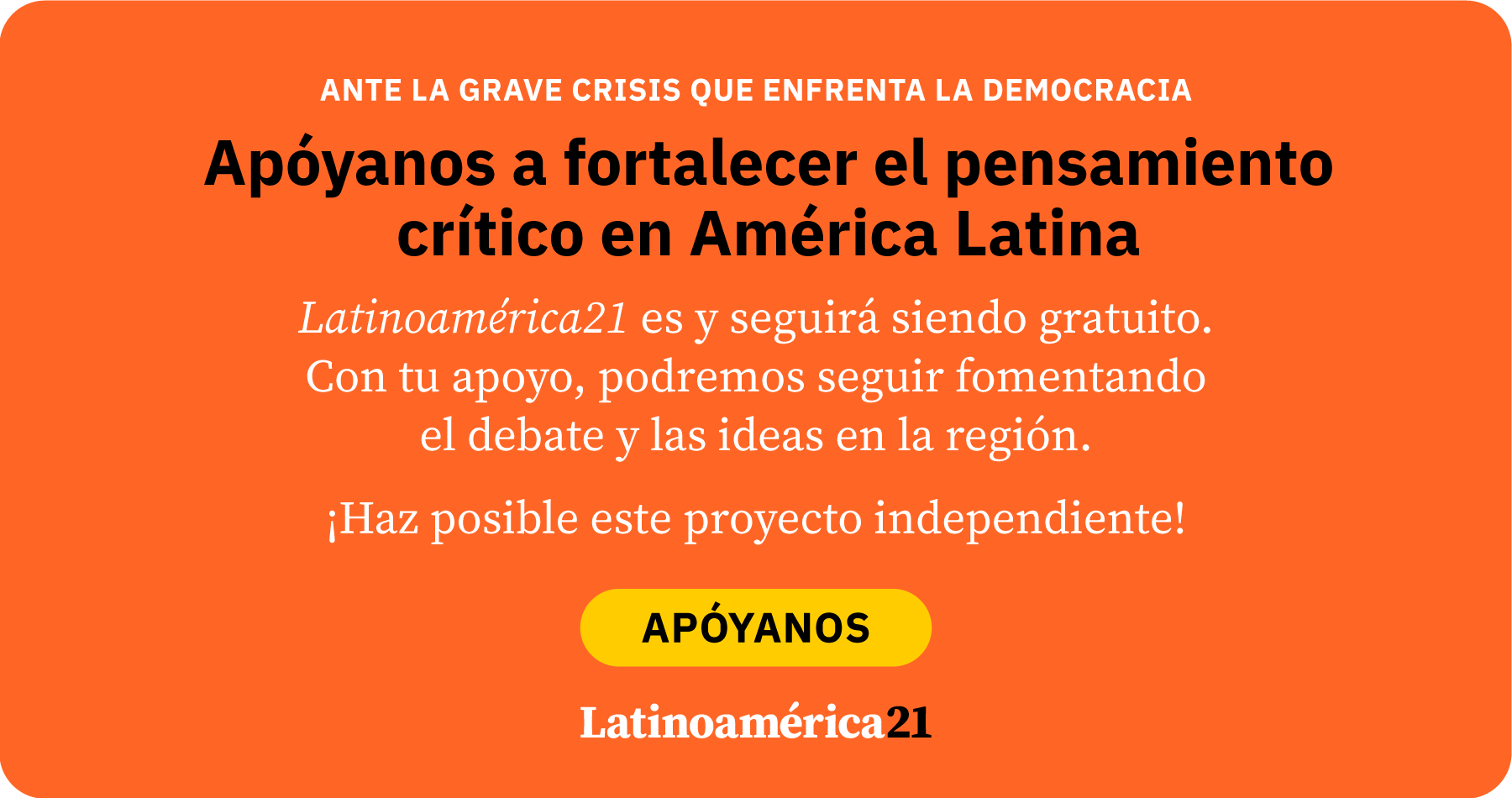El académico mexicano Rafael Hernández, de forma precisa, ha sostenido que el gobierno del presidente Andrés Manuel López Obrador registra una suerte de promesa incumplida en materia de política de migración. Cuando ascendía al poder, en 2018, anunció que, a diferencia de las gestiones anteriores, la suya se basaría en la definición de un nuevo paradigma que privilegiaría el respeto pleno de los derechos humanos y apostaría por el desarrollo social y económico como sustento material de las personas en movilidad dentro de México.
Tal cosa no ha ocurrido, como lo vienen documentando diversas denuncias de maltratos y violaciones a los derechos humanos, por parte de autoridades mexicanas, contra migrantes venezolanos, cubanos, centroamericanos y haitianos principalmente, en particular desde que se activó el acuerdo bilateral con Estados Unidos para impedir el acceso sin documentación de los oriundos de Venezuela, hace ya un año. Desde entonces se ha intensificado la respuesta policial y militar.
La actual crisis migratoria debe abordarse desde una perspectiva regional, ya que está envolviendo a países expulsores, como Venezuela, Ecuador, Colombia, Haití y Cuba, junto al tradicional triángulo de la frontera norte centroamericano (El Salvador, Honduras y Guatemala); a países de tránsito, como Colombia, Panamá y prácticamente toda América Central, y obviamente a México, pero siendo este no solo lugar de circulación sino también de asentamiento para miles de migrantes, aquellos que no logran ingresar a Estados Unidos.
El territorio estadounidense sigue siendo una suerte de imán, profundamente atractivo, sabiendo o a veces desconociendo las travesías, obstáculos y peligros que acechan en muy distintos lugares de la región para quienes van en su búsqueda sin tener permiso de ingreso por vía regular.
México, por razones geopolíticas y, por tradición, al haber sido históricamente un país de emigrantes, y siendo además un nudo gordiano en la actual crisis, debe liderar una política integral en coordinación con otros países. México, que con López Obrador ha reproducido de nuevo el rol de perro guardián de la frontera con Estados Unidos, debe abrirse a otra discusión más amplia, signada por la respuesta humanitaria integral que demanda la actual crisis.
El anuncio de la Cancillería mexicana de que se convocara una conferencia regional, con una decena de países, para discutir sobre la situación migratoria, debe ser visto como una primera señal positiva. Es un primer paso en una serie de decisiones que deberán tomar los países de manera individual y de forma concertada para hacer frente al mayor volumen, en menor tiempo y de más rápido crecimiento de un flujo migratorio en la región que a todas luces es desordenado, y está protagonizado por personas en clara condición de vulnerabilidad, que están literalmente huyendo de sus países con lo poco que llevan encima.
Cualquier discusión gubernamental en la región sobre el creciente volumen de migrantes, sin duda una problemática que amerita respuestas gubernamentales a diversas escalas, debe partir de un principio claramente definido por la Comisión Interamericana de Derechos Humanos en 2019: “Todo migrante tiene derecho al respeto de su dignidad humana”. Todo migrante es, a fin de cuentas, una persona, y por ser humano es portador de los derechos básicos universalmente reconocidos. Parece una perogrullada, pero es una verdad que no debe ser relativizada en cualquier decisión gubernamental que involucre a los migrantes, sin importar su estatus migratorio.
México ha confirmado, este 1 de octubre, que unas 10.000 personas llegan cada día a la frontera de este país con Estados Unidos. Según el gobierno de López Obrador, es una situación que les desborda. EE.UU. también se ha visto excedido: en los primeros 17 días de septiembre hubo 142.037 detenciones de migrantes en la frontera, un 15% más que las 123.777 del mismo periodo del mes pasado. Junto a esto, alrededor de 1.450 personas cada día son admitidas por vía regular, en territorio estadounidense, a través de la aplicación móvil CBP One, con trámites que se realizan en su mayoría desde suelo mexicano.
Costa Rica se ha adelantado a la reunión en México para declarar, el pasado 26 de septiembre, una emergencia nacional. De acuerdo con los datos oficiales de las autoridades fronterizas, hasta el 23 de septiembre más de 390.000 migrantes habían cruzado este año la peligrosa selva del Darién que separa a Colombia de Panamá. Se trata de la cifra más alta registrada, y convierte de facto a esta zona selvática en el principal corredor migratorio de las Américas. En todo 2022, unas 248.000 personas atravesaron el Darién.
Los migrantes, una vez que pasan el Darién, no se detienen en territorio panameño: el gobierno de Panamá llama “flujo controlado” al traslado en buses de los extranjeros hacia la frontera con Costa Rica, que es el siguiente país en la ruta. Desde junio, cuando ingresaban en territorio costarricense unos 900 migrantes al día por la frontera sur, el flujo se triplicó hasta unos 2.600 diarios durante agosto. La respuesta del gobierno de Rodrigo Chaves, sin embargo, no ha sido atender la situación humanitaria, sino evitar que los migrantes permanezcan en el territorio de su país.
Lo anunciado por Chaves es un esquema de transporte, organizado por el Estado con empresas privadas, bajo el cual se le cobra 30 dólares a cada persona por su traslado exprés entre la frontera sur de Costa Rica (con Panamá) y la norte, colindante con Nicaragua.
El portal BBC Mundo ha narrado que una vez que llegan al norte de Costa Rica, muchos migrantes recurren al servicio de “talibanes”, como se conoce a transportistas que los llevan hasta puntos ciegos de la frontera nicaragüense al no poder pagar los 150 dólares que el gobierno de Managua cobra como salvoconducto para ingresar regularmente por el punto fronterizo de Las Tablillas.
Y así, estos traslados, pagos, movilizaciones, son parte de una ruta que según el dinero con el que se cuente puede transcurrir más rápido o no. Un hombre de 30 años, hijo de un señor que suele servirme el café en un establecimiento en Venezuela, tardó un mes desde que salió del Darién y pudo llegar al norte de México. Allí hace trabajos menores y trata de recuperarse económicamente para dar el salto hacia suelo estadounidense, donde sueña poder llevarse en el futuro a su esposa y dos hijas, que quedaron atrás.












